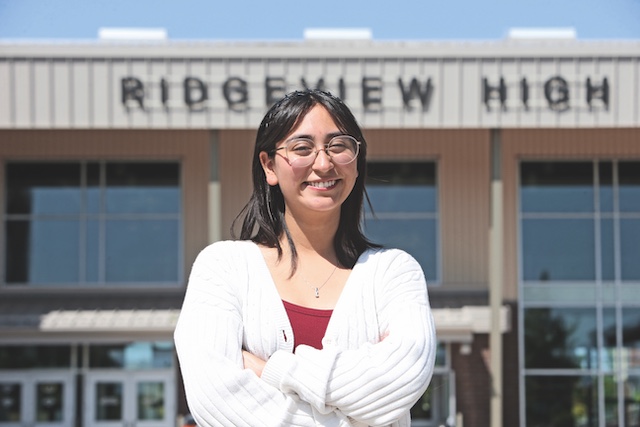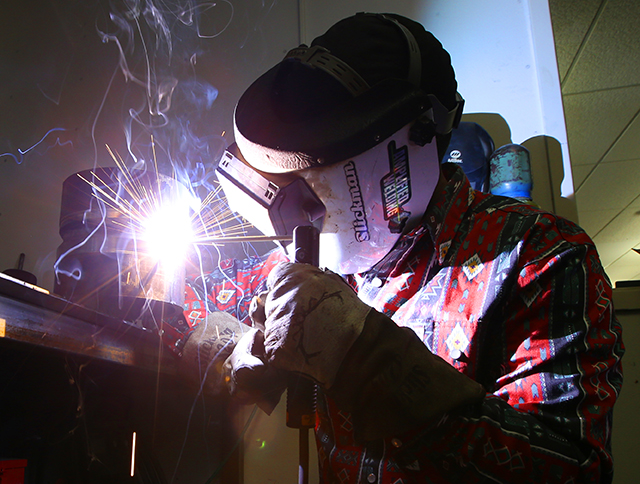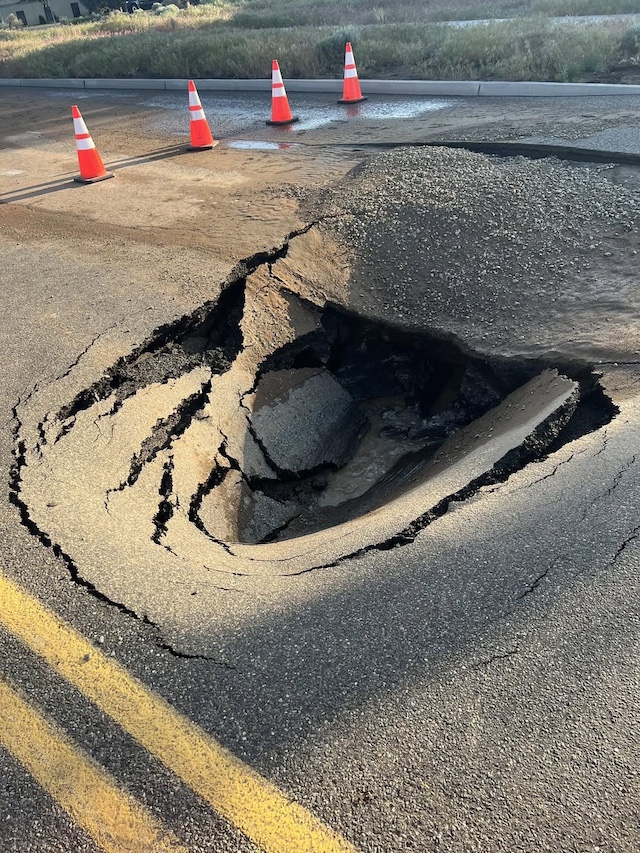Central Oregon food banks accept donated game meat from hunters
Published 5:45 am Monday, January 1, 2024

- Elk meat in a freezer at Cinder Butte Meat Co. in Redmond.
Most hunters who go to the work of killing, skinning and gutting a deer or elk during the fall big-game seasons want to ensure that none of the meat is wasted.
Many hunters fill their freezers with game meat for their families, but some also make a point to help those in need by donating their meat to NeighborImpact food banks.
“A lot of times people are just out of freezer room,” said Jordan Reeher, program coordinator at the NeighborImpact food bank in Redmond. “If you get an elk, it takes up a lot of room in the freezer. It’s a way to make sure the meat doesn’t go to waste. Especially with hunters, they care a lot about that meat not going to waste and making sure that from them hunting it, it actually gets used. Providing it to a food bank, you know that no matter what that meat is going to be used and go to a home that is grateful for it.”
Hunters can take their meat to any state-licensed butcher to have it processed before donating it. Those interested in donating meat can contact NeighborImpact at 541-548-2380. The food banks do not accept home-processed meat, but they can often pay for butcher costs.
“If we have funding, we would love to pay for cut-and-wrap and butcher costs as long as it’s at a good price,” Reeher said.
He added that hunters often donate part of an animal or an entire animal. And NeighborImpact loves receiving wild game, because meat is the most requested item from food banks and their clients, according to Reeher.
“Clients tell us they always need more meat, Reeher said. “Across all our partner agencies, it’s the No. 1 most requested item. Any time we can get more meat we are always happy and willing to accept it, and give it to a good home. It’s so expensive at the grocery store to afford meat. If there’s any way to get it for free, that’s just a huge portion of people’s budget.”
Reeher said that most of their big-game donations come in October and November, when the majority of the big-game hunting seasons take place across Oregon. But NeighborImpact accepts game meat year-round, even if it’s from an out-of-state hunt or has just been sitting in the freezer, as long as it is not more than two years old.
“You hear all the time about people who have wild game meat in their freezer for a long time,” Reeher said. “They can donate that to us, as long as it was processed in a state facility, and they can get another animal next year to replace it. I think there’s a lot of people who have excess meat in the freezer.”
When the donated game meat is processed by butchers that work with NeighborImpact, it is most often ground into burgers, Reeher noted.
“Venison and wild game in general are not always everybody’s cup of tea, so we want to make sure it’s something people are going to like,” he said.
NeighborImpact works with Cinder Butte Meat Co. in Redmond and Butcher Boys in Prineville, among other Central Oregon butcher shops.
Fresh eggs are another source of protein vital to those with food insecurity, and NeighborImpact food banks also accept eggs from backyard chickens, Reeher noted.
“They don’t need to be processed in a USDA facility or anything,” he said. “They can just bring homegrown chicken eggs to us and we’ll get them to clients around Central Oregon.”
Series: Hunger in Central Oregon
One in 5 residents of Central Oregon is hungry too often. Civic leaders, organizations and volunteers fighting to solve the problem say hunger goes deeper than most people are aware. The Bulletin is shining a light on the situation and the community’s efforts to address it.
• Hunger in Central Oregon: Food security is more than subsistence: the changing reality of hunger
• Food banks: Myriad options in Central Oregon for donating to food banks
• Helping seniors: From prison with love: Deer Ridge inmates cook meals for Madras seniors
• Growing up hungry: How is Central Oregon helping its hungry children?
• Finding comfort with food: Neighbor of Bend senior center finds solace in baking
Series: Hunger in Central Oregon
One in 5 residents of Central Oregon is hungry too often. Civic leaders, organizations and volunteers fighting to solve the problem say hunger goes deeper than most people are aware. The Bulletin is shining a light on the situation and the community’s efforts to address it. Previously published stories in the series are:
Dec. 19
• Hunger in Central Oregon: Food security is more than subsistence: the changing reality of hunger
• Food banks: Myriad options in Central Oregon for donating to food banks
Dec. 20
• Helping seniors: From prison with love: Deer Ridge inmates cook meals for Madras seniors
Dec. 21
• Growing up hungry: How is Central Oregon helping its hungry children?
Dec. 22
• Finding comfort with food: Neighbor of Bend senior center finds solace in baking
Dec. 23
Helping others: In the face of insults and threats, Prineville woman vows to feed the needy
Dec. 26: PHOTOS: See how food goes from Central Oregon’s leading food bank to residents





